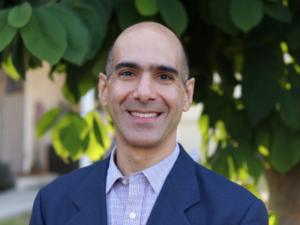
Licensed Psychologist
Jamie Yadavaia, Ph.D.
Therapeutic Approach: I believe that the concerns and struggles people bring to therapy reflect our shared humanity and not something fundamentally wrong with us. In other words, we’re not broken—we’re human. Further, I believe that we each have within us a deep intuition, a wisdom, about the directions we most want to pursue in life. That wisdom is often covered over or obscured by fears, insecurities, or resentments, or by the messages we’ve received from others as to how we “should” conduct our lives. A foundational part of my style as a therapist is to start by listening non-judgmentally with my heart, mind, and soul to understand your difficulties, experiences, priorities, and goals. This will help both of us discover what stirs your heart and what you really want to direct your energies towards in life. Where obstacles may show up in the form of painful emotions or negative thought patterns, I will work to give you the tools to relate to them in different ways so that they create less disruption in your life. Key among these tools is developing the ability to let go of unhelpful patterns of avoidance so that you may receive the wisdom your pain has to offer and to treat the parts of yourself that are experiencing it gently with compassion and kindness.
I work with adults ages 18 and up to address concerns including but not limited to:
- anxiety
- depression
- trauma
- difficulties regulating emotions
- anger management
- interpersonal conflict
- school/work stress
- perfectionism
- cultivating self-acceptance
- men’s issues
- personal growth
Background: My first experiences with therapy were as a client, and I chose this profession because therapy changed my life. I received my BA in psychology from the University of Pennsylvania and my PhD in clinical psychology from the University of Nevada, Reno. I completed my internship and postdoctoral fellowship at the Veterans Affairs (VA) Long Beach Healthcare System and worked with veterans for several years before coming to Crossroads Institute. My clinical training has focused on mindfulness-based therapeutic approaches, such as acceptance and commitment therapy (ACT) and dialectical behavior therapy (DBT), as well as more traditional cognitive-behavioral techniques. My dissertation focused on using ACT to cultivate self-compassion.